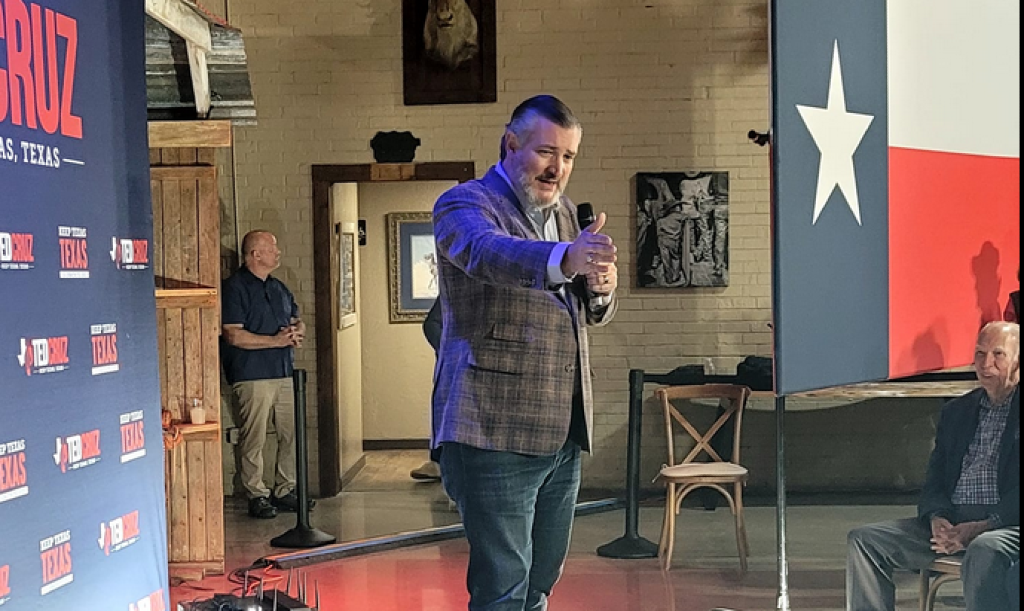GOP Senators: Biden Deliberately Excluding Satellite, Wireless From Broadband Count
'When the data are wrong, policy outcomes will inevitably suffer,' GOP senators say.
Ted Hearn

WASHINGTON, Nov. 2, 2024 – Three Senate Republicans claim the Biden Administration is deliberately undercounting the number of U.S internet subscribers by adopting a methodology designed to exclude satellite and wireless users.
The GOP Senators – Ted Cruz of Texas, Cynthia Lummis of Wyoming, and Marsha Blackburn of Tennessee – said they discovered the alleged undercount in the fine print of Project LEIA (Local Estimates of Internet Adoption) under development by the Commerce Department's National Telecommunications and Information Administration and the Census Bureau.
"While the Project LEIA website claims its estimates offer reliable data on internet adoption for all U.S. counties, it fails to mention the exclusion of millions of American households who rely on wireless and satellite technologies for internet access," said the GOP lawmakers, all members of the Commerce Committee. "This omission results in systemic undercounting and data bias. When the data are wrong, policy outcomes will inevitably suffer."
The lawmakers expressed their concern in an Oct. 31 letter to NTIA Administrator Alan Davidson and Census Bureau Director Robert Santos. NTIA in the Commerce Department is overseeing the administration's $42.45 billion Broadband Equity, Access, and Deployment program intended to connect all Americans to high-speed internet by the end of the decade.
The hard-hitting GOP letter accused the administration of "manipulating census data to suppress the number of American households connected to high-speed internet via wireless and satellite technologies" in a "deliberate" effort to misrepresent the level of broadband adoption on a county by county basis.
On its website, the Census Bureau describes LEIA as an experimental data product that provides county-level estimates of high-speed internet adoption across the nation.
They also accused NTIA and the Federal Communications Commission of discriminating against Elon Musk's Starlink satellite-delivered internet service, which, they said, "provided critical, life-saving capability during recent disasters like Hurricanes Helene and Milton." On Friday, Charter Communications CEO Christopher Winfrey said 10,000 customers affected by the hurricanes in late September and early October were still without internet service.
Although NTIA has expressed a preference to fund fiber technology, the Commerce Department division in August issued draft guidance on how states can fund alternative technologies, such as satellite and unlicensed fixed wireless, in places where it is too expensive to fund fiber builds. The move was seen as a concession to critics seeking a broader portfolio of technologies worthy of NTIA funding.
In recent comments, Davidson chalked up the criticism of the BEAD program to "election-year politics" given that BEAD in the past had enjoyed bipartisan support.
He said NTIA's rollout of the BEAD program had to await for the completion of FCC maps identifying unserved homes and businesses to ensure that BEAD funding hit its targets.
He compared that patient approach to the FCC's 2020 Rural Digital Opportunity Fund (RDOF), which he said was "implemented in a hurry at the end of the last administration by an FCC that did not take the time to build good maps, did not take the time to have good data, was not careful about making sure that the providers who got the money were going to be able to follow through."
By law, the FCC maintains a map of every home and business where broadband could be installed and what internet service those locations have access to. The agency updates the map twice annually with provider-reported data.
The latest version, released May 21, showed about 6 million unserved homes and businesses, down from about 7 million from the previous count.









Member discussion